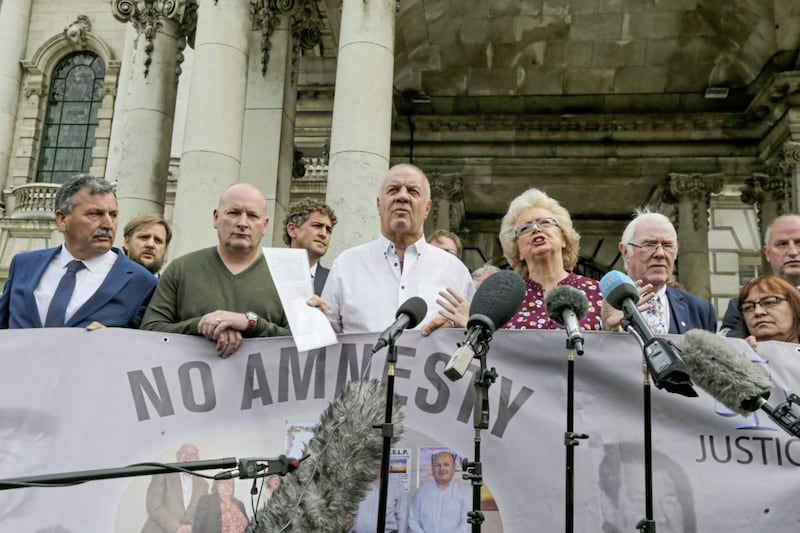THE current British government’s record in relation to Northern Ireland has been questionable to say the least but this episode plumbs new depths of disregard and tactlessness.
The reaction on this side of the Irish Sea to reports of legislation introducing a statute of limitations for Troubles-related offences has been one of universal outrage.
North and south, unionist and nationalist, state and paramilitary victims have all voiced anger both at the substantive proposal and the cynical manner in which it came to light.
It’s unclear where the leak to London-based journalists originated, but it is extraordinary that when Secretary of State Brandon Lewis met foreign affairs minister Simon Coveney on Wednesday the matter wasn’t raised.
Information remains scant and people have been left to fill in gaps themselves. Some of the speculation may be correct, some erroneous - nobody can be sure.
This cowardly and irresponsible approach enables the British government to evade some criticism, while politicians and victims’ advocates are set against each other in a way that only deepens animosity around a highly emotive subject.
It is also yet another example of the haphazard, piecemeal approach to legacy over the past 23 years.
The justice system is meant to be independent from politics yet at several junctures expediency has trumped the rule of law.
Among a litany of poor judgements and unfulfilled promises, 2009’s Eames-Bradley report stands out as a sensible and measured way to move things forward yet its recommendations were were spurned on the basis of a suggested payment to all victims.
In its place we’ve had agreements and commitments but little progress, and now this glacial process looks set to take a turn away from consensus towards the unilateral imposition of policy that will retraumatise many victims.
If, as reported, the amnesty is to be flagged in the Queen’s Speech next Tuesday, it will also coincide with the verdict of the inquest into the 1971 Ballymurphy massacre.
Is it really possible that the families who’ve waited more than half a century will have their hopes crushed just as they glimpse the possibility of justice?
It will also represent the binning of pledges given in 2014’s Stormont House Agreement, which were reiterated in last year’s New Decade, New Approach.
Efforts to put in place the suite of promised measures have been lacklustre, conveying an impression that commitments to address legacy are little more than lip service.
It’s therefore rich of the British government to continually stall the process and then claim yesterday that the “current system for dealing with the legacy of the Troubles is not working for anyone”.
There are of course many problems associated with historical prosecutions, as highlighted this week by the collapse of the trial of two former soldiers accused of the 1972 murder of Joe McCann.
But is it realistic to think the Official IRA leader’s family would be satisfied with a South African-style truth and reconciliation commission in place of successful prosecution?
There are also concerns that any unilateral attempts by the British government to establish structures that don’t conform to letter of the Stormont House Agreement could breach an international treaty signed with Dublin in 2015.
Decisiveness has been been lacking from this process for more than two decades but to suddenly offer blanket immunity for past crimes for what looks like political advantage is clumsy and callous.








